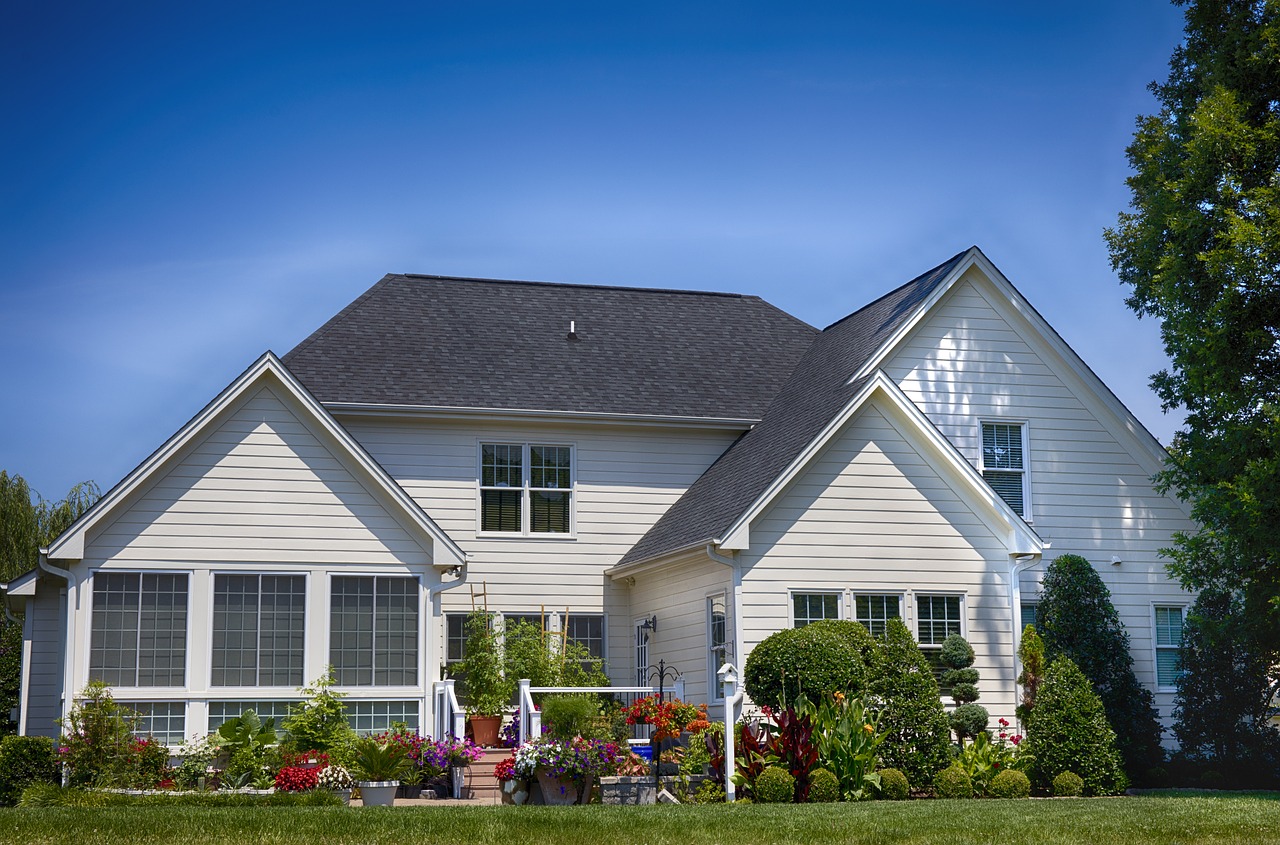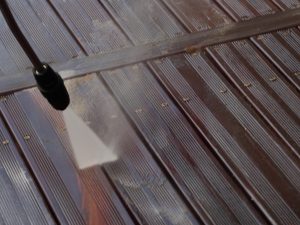When thinking about your cleaning checklist for your home, it’s easy to only think about the inside. However, your home’s exterior is just as important as the interior, requiring the same attention. A great way of removing dirt and buildup from your home exterior is to pressure wash your house. Pressure washing gets rid of stubborn dirt and stains that can’t be removed by simply scrubbing it. But what exactly can you pressure wash and how often should you pressure wash your house?
What Can You Pressure Wash?
The exterior of your house is constantly exposed to the elements. Problems like mold, mildew, algae, dust and debris are common. Apart from these issues, bird droppings, pollution, smoke, oil stains and chemical residue also cause your home exterior to get dirty. Over time your house will start to look dirty.
Ignoring a dirty house can have potentially serious consequences, so having a pressure washing schedule is essential for your home’s maintenance. In Florida, the salty deposits from the ocean (which are present in water vapor in the air) can also exacerbate natural buildup of dirt. The salt naturally present in the air can cause steel structures, like garage doors or steel roofs, to rust when left too long.
When it comes to pressure washing your house exterior, think about more than just sidings. Many areas of your house can be pressure washed, including your roof, wooden fencing, deck, patio, pool area, statues, railings, walkways, driveways, garage floors and outdoor furniture, for example.
Weather and Pressure Washing
Although it might not seem like it, the weather plays an important role in pressure washing your house. In fact, the weather even determines when you should pressure wash.
The humid climate in Florida creates a breeding ground for mold and mildew accumulation. This makes frequent pressure cleaning an important task in the Sunshine state.
Florida region also experiences a lot of strong winds, which adds dust, debris and dirt on your home’s surface. A good idea is to pressure wash after the rainy season when hindrances will be limited. The fall or spring seasons are good options due to the better climate and temperatures.
How Often Should You Pressure Wash Your House?
How often should you pressure wash your house? Generally speaking, pressure washing once a year can be enough. However, since location and climate determine the frequency you need to pressure wash, it depends on your situation. This is why it’s good to clean whenever it’s necessary rather than strictly doing pressure washing once every year.
Just take note that you don’t over-clean as well, as cleaning more than is necessary can cause wear and tear.
The Area You Live In
Because of Florida’s humid climate, houses in Florida deal with a lot of mold, mildew, and algae. Be watchful of when these start growing and use that to determine the timeframe between each cleaning. The frequency in which you should pressure clean ultimately depends on where you live.
Before Repainting Your House
Pressure washing is ideal for when you’re planning to repaint your house. A thorough clean before repainting helps remove dirt from the surface. This ensures there’s no residue between the old and new layer of paint. If there’s any residue on the surface you’re repainting, the new paint will cling to the residue rather than the building, causing it to peel away more easily.
So, always pressure wash before applying any new paint – even if you recently had your house cleaned and it still looks clean.
If You Want to Resell Your House
Nobody wants to buy a dirty, nasty-looking house. The dirtier it is, the less appealing it will be to potential buyers.
Cleanliness can increase the value of your house substantially. When potential buyers look at a house that isn’t kept clean, they easily assume the overall maintenance of the property is lacking. As a result, they’ll lower their bidding prices, seeing as they expect to pay a lot of maintenance to get the house up to snuff.
Construction
If there’s a lot of construction in your area, or you’re having some renovations done, you’ll know it can get dusty. The dust and other debris can cling to your house and cause it to look extremely dirty. If this happens, you’ll need to clean your home regularly to get rid of the mess.
Alternatively, you can wait for the construction work to stop before scheduling a cleaning. If you’re having your house renovated over a three-month period, it makes sense to wait until construction is done. But if a new building is being built next to your home over a year or more, it’s best to schedule more regular cleanings.
Pressure Washing Your House: The Benefits
Improves Your Curb Appeal
Dirt buildup may seem insignificant initially, but as time goes by, it can become more visible. One of the main reasons to frequently pressure wash your home is probably the most obvious – it makes your home look good.
In a way, your home is a representation of who you are. Making a good impression on passersby and guests is important. Besides that, it just feels much better to come home to a beautiful, fresh and clean house.
Keep Your Family Healthy
Mold and mildew are very dangerous to your health and should not be left untreated. Harmful airborne contaminants like dust and byproducts released by algae, allergens, rot, and mold can cause respiratory problems, which can be life-threatening.
Pressure washing can prevent dirt from spreading and contaminating the air inside your home. Additionally, if not removed, mold can grow within your walls as well, which means it can affect your home’s interior too.
Keeps Your Home in Great Shape
Cleaning prevents your home from deteriorating and becoming unsafe to live in. Also, it keeps your home safe from contaminants responsible for mold growth and dry rot, which can lead to the breakdown of materials such as wood.
Over time, your driveway or walkway may become slippery from algae growing on it, which presents a serious slipping hazard for you and your loved. Algae removal can prevent slipping incidents from occurring.
Save Money
Regular pressure washing helps you keep your home in tip-top shape. Cleaning can help you detect potential issues sooner, before they become worse. Anything from a misplaced roof to paint chipping off your sidings is easier to see when your house is clean.
By having small issues fixed sooner, you’ll prevent bigger, more expensive problems.
Save Time and Effort
Another fantastic benefit of pressure washing your home is that it saves you a lot of time. Compared to other cleaning methods that demand a lot of elbow grease, pressure washing makes cleaning your surfaces simple and fast.
DIY vs Going Professional
Anyone can buy a pressure washing machine and clean their home, but it’s safer to hire pressure washing experts. Professionals can clean your home and surrounding areas without causing damage to your property.
Pressure cleaning can be dangerous, the high pressure water beams from the machine can literally inflict injuries and damage property. If you don’t know what you are doing, you can remove paint off your walls, chip away pieces of wood off of your deck, knock siding loose and even cause mortar to break away if you have a brick house.
So, without taking the risk, call in an expert who’ll easily take care of everything. The cost of hiring a professional is well worth it.
How Often Should You Pressure Wash Your House: Conclusion
You can’t focus on your home’s interior and ignore the exterior. The outside of your home is endlessly vulnerable to the environment and that takes its toll eventually.
Pressure washing can be likened to a restart button that makes your home look brand new again. It’s an easy and inexpensive way to maintain your home, reduce health risks from mold, preserve your home’s appeal and give it an instant facelift. Most importantly, regular pressure washing helps you protect your investment. Be sure to always pressure clean your house before repainting and whenever it seems dirty.



